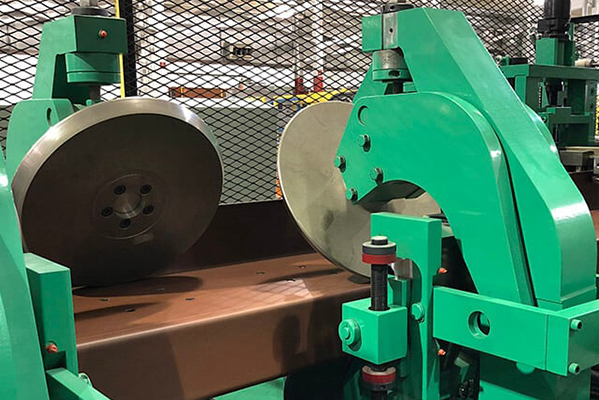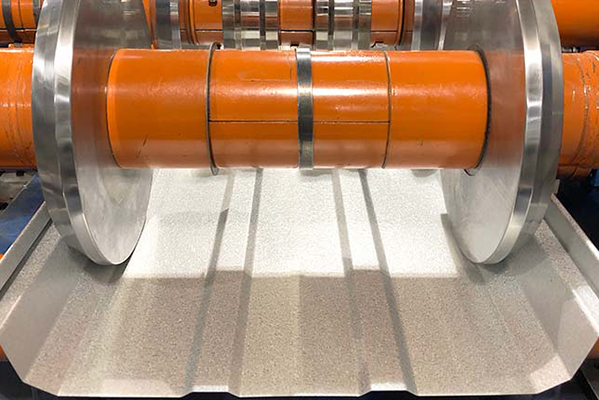Navigation Menu
Contact Us
- Email:
- info@wxavatar.com
- Address:
- Yurong Village, Yuqi Street, Huishan District, Wuxi, China.
Release Date:Apr 02, 2025 Visit:74 Source:Roll Forming Machine Factory
Metal shingle lines offer an excellent roofing solution that combines durability, energy efficiency, and aesthetic appeal. However, to ensure optimal performance and longevity, there are several important factors to consider during selection, installation, and maintenance. This guide covers the critical aspects you should pay attention to when using metal shingle lines.
1. Material Selection and Quality
Types of Metal
Steel (Galvalume or Galvanized): Most common, affordable, and durable
Aluminum: Lightweight and corrosion-resistant (ideal for coastal areas)
Copper/Zinc: Premium options with natural patina development
Stainless Steel: Highest corrosion resistance but most expensive
Key Quality Indicators
Gauge thickness (lower numbers = thicker metal; 24-26 gauge recommended)
Protective coatings (PVDF, Kynar, or ceramic for UV/fade resistance)
Warranty coverage (look for 30-50 year warranties)

2. Professional Installation Requirements
Critical Installation Factors
Proper underlayment: Use high-quality synthetic underlayment for moisture protection
Correct fastening: Screws should penetrate roof decking by at least 1 inch
Expansion gaps: Allow 1/4" per 10 feet for thermal movement
Flashing details: Pay special attention to valleys, chimneys, and penetrations
Common Installation Mistakes to Avoid
Over-tightening fasteners (can cause oil canning/warping)
Insufficient overlap between shingles (minimum 3" recommended)
Improper alignment leading to water diversion issues
3. Climate Considerations
Cold Climate Adaptations
Ice and water shield installation at eaves
Heavier gauge metal for snow load resistance
Snow retention systems to prevent dangerous sliding
Hot Climate Adaptations
Light-colored or reflective coatings to reduce heat absorption
Ventilated roof design to minimize heat transfer
Expansion joint planning for extreme temperature swings
4. Maintenance and Inspection
Recommended Maintenance Schedule
Bi-annual inspections (spring and fall)
Gutter cleaning to prevent water backup
Fastener checks for loosening over time
Coating inspections for fading or damage
Common Repair Needs
Re-sealing around penetrations
Touch-up painting for scratched areas
Replacement of damaged individual shingles
5. Safety Considerations
Installation Safety
Proper fall protection equipment
Non-slip footwear for roof access
Care when working near roof edges
Long-Term Safety Features
Lightning protection systems (if in high-risk areas)
Fire-resistant ratings (especially in wildfire zones)
Snow guard installation for pedestrian protection
6. Cost and Value Considerations
Budgeting Factors
Material costs (3−15 per square foot depending on metal type)
Installation complexity (steep roofs cost more)
Long-term savings (energy efficiency, durability)
Value-Adding Features
Cool roof certification for energy rebates
Custom color matching for aesthetic appeal
Architectural-grade profiles for premium look

7. Compatibility with Other Systems
Integration Considerations
Solar panel mounting compatibility
Roof ventilation system coordination
Skylight and chimney flashing integration
Structural Requirements
Roof deck condition assessment
Load-bearing capacity verification
Wind uplift resistance requirements
Conclusion
Metal shingle lines can provide decades of reliable protection when properly selected and installed. By paying attention to material quality, professional installation, climate adaptation, regular maintenance, and safety factors, you can maximize the benefits of your metal roof investment. Always work with certified metal roofing contractors and follow manufacturer specifications to ensure optimal performance.
For best results, consider consulting with multiple roofing professionals and comparing product specifications before making your final decision. With proper attention to these details, your metal shingle roof will deliver outstanding performance and aesthetic appeal for generations.